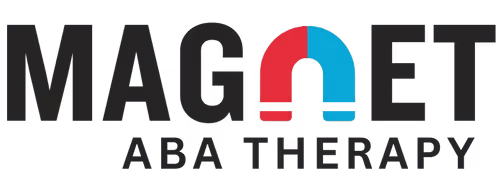Understanding Autism Waivers in Illinois
When it comes to understanding how to obtain an autism waiver in Illinois, it is important to familiarize yourself with the support available for children and young adults with developmental disabilities. The Support Waiver for Children and Young Adults with Developmental Disabilities in Illinois aims to provide services to children and young adults between the ages of 3 and 21 who have intellectual or developmental disabilities and live at home with their families. These individuals are at risk of placement in an Intermediate Care Facility for Individuals with Intellectual Disability (ICF/ID) [1].
In Illinois, the Home and Community-Based Services (HCBS) waivers play a vital role in providing services that allow individuals to stay in their own homes or live in a community setting instead of an institution. Illinois offers nine HCBS waivers, each tailored to meet the needs of individuals with specific requirements and offering a range of services. These waivers are designed to enhance the quality of life for individuals with developmental disabilities and their families.
To provide further clarity, the following table summarizes the HCBS waivers available in Illinois for children with developmental disabilities:
Table based on information from Kids Waivers.
Understanding the available autism waivers in Illinois is an essential step towards accessing the necessary support and services for your child. To begin the process, individuals seeking developmental disability waiver services must sign up for the Prioritization of Urgency of Need for Services (PUNS) database. This database registers individuals who are seeking or anticipating a future need for DD Waiver services funded by the Illinois Department of Human Services (DHS). As funding becomes available, individuals are selected from PUNS and are then invited to apply for DD Waiver services [3].
For detailed information on applying for DD Waiver services in Illinois, individuals can refer to the Illinois DHS website or seek personalized assistance from the Autism Speaks Autism Response Team (ART) via phone, email, or online chat. The Illinois DHS website provides updated information and guidance on the PUNS process and the steps involved in obtaining services. Accessing the necessary resources and assistance is crucial to successfully navigating the autism waiver application process.
Eligibility for Autism Waivers
Before accessing the autism waiver program in Illinois, it's important to understand the eligibility criteria. This section will cover the financial requirements and services offered under the program.
Financial Requirements
To qualify for the autism waiver program in Illinois, families must meet the financial eligibility requirements of the Medicaid program. Medicaid in Illinois provides healthcare coverage to individuals and families with low income, with specific income limits based on factors such as family size, age, and disability status.
For example, a family of four with an annual income of $34,000 or less may be eligible for Medicaid in Illinois. These income limits may vary, so it's important to check the eligibility guidelines to determine if your family qualifies.
Services Offered
The autism waiver program in Illinois provides a range of services to support children with autism and their families. Families enrolled in the program have the flexibility to choose their own service providers based on their specific needs and preferences.
The program covers all costs associated with these services, alleviating financial concerns for families. Some of the services offered under the autism waiver program include:
- Applied Behavior Analysis (ABA) therapy: ABA therapy is a highly effective treatment for individuals with autism. It focuses on improving social, communication, and behavioral skills through structured interventions.
- Speech therapy: Speech therapy helps children with autism improve their communication skills, including speech, language, and social communication.
- Occupational therapy: Occupational therapy addresses sensory processing difficulties, motor skill deficits, and helps children develop independence in everyday activities.
- Physical therapy: Physical therapy aims to improve gross motor skills, coordination, and strength in individuals with autism.
- Respite care: Respite care provides temporary relief for families caring for a child with autism. It offers support and assistance to ensure the well-being of both the child and their caregivers.
The specific services offered may vary based on the needs of the child and the resources available in the community. Families should consult with the Illinois Department of Human Services (DHS) or their assigned case manager for more information on the services covered under the autism waiver program.
By meeting the financial requirements and understanding the services offered under the autism waiver program in Illinois, families can take the necessary steps to access the support and resources available to them. For more information, you can visit the Illinois DHS website or contact the Autism Speaks Autism Response Team (ART) for assistance.
Applying for an Autism Waiver
When seeking an autism waiver in Illinois, parents of children with autism can follow a specific process to access the necessary services. Two key components of this process are the Prioritization of Urgency of Need for Services (PUNS) and the accompanying guidelines.
Prioritization of Urgency of Need for Services (PUNS)
The first step in obtaining developmental disability waiver services in Illinois is to sign up for the Prioritization of Urgency of Need for Services (PUNS) database. This database registers individuals who are seeking or anticipating a future need for DD Waiver services funded by the Illinois Department of Human Services (DHS).
PUNS Guidelines
In January 2021, the Illinois DHS Division of Developmental Disabilities implemented revised PUNS guidelines. These guidelines introduce two categories: "Seeking Services" and "Planning for Services". To accumulate the necessary wait time for Adult DD Waiver Services, adults must be listed in the "Seeking Services" category, which currently has a wait time of five years or more. The selection from the PUNS list is based on the individual's length of time in the "Seeking Services" category, with priority given to those who have been on the list the longest in that category.
It's important to note that time spent on the PUNS list while under the age of 18 does not count towards the wait time for Adult DD Waiver Services in Illinois.
To obtain the most up-to-date information and guidance on PUNS and the process for obtaining services, individuals can refer to the Illinois DHS website. Additionally, personalized assistance can be obtained by contacting the Autism Speaks Autism Response Team (ART) via phone, email, or online chat.
When applying for an autism waiver in Illinois, it's essential to understand the financial eligibility requirements of the Medicaid program. Medicaid in Illinois is available to individuals and families with low income, and the income limits vary based on factors such as family size, age, and disability status. For instance, a family of four with an annual income of $34,000 or less may be eligible for Medicaid in Illinois.
By following the PUNS process and being aware of the guidelines, parents can navigate the application process for an autism waiver in Illinois and access the necessary services for their children with autism.
Wait Time and Selection Process
When applying for an autism waiver in Illinois, it's important to understand the wait time and selection process. The wait time can vary depending on several factors, including the specific waiver program and the individual's category within the Prioritization of Urgency of Need for Services (PUNS) system.
PUNS Categories
The PUNS system in Illinois categorizes individuals with developmental disabilities, including autism, into two categories: "Seeking Services" and "Planning for Services". Adults must be listed in the "Seeking Services" category to accumulate the necessary wait time. It's important to note that time spent on the PUNS list while under the age of 18 does not count towards the wait time for adult DD waiver services in Illinois [3].
The wait time for autism waivers can be significant, with individuals often waiting for several years before receiving services. Currently, the wait time for individuals in the "Seeking Services" category is five years or more [3]. The selection process for autism waivers is based on an individual's length of time in the "Seeking Services" category. Priority is given to those who have been on the list the longest in that category.
Wait Time Considerations
The wait time for Home- and Community-Based Services (HCBS) waivers, including autism waivers, can vary not only by state but also by the specific waiver program. According to data from 2023, the average waiting period for HCBS waiver services was 36 months, with people with autism waiting an average of 37 months for services. It's important to note that these wait times are subject to change and may vary based on factors such as available resources and the number of people seeking services.
To stay updated on wait times and other important information related to autism waivers in Illinois, it is recommended to regularly visit the Illinois Department of Human Services (DHS) website. The website provides valuable resources and guidance on accessing waivers and related services. Additionally, contacting the Autism Speaks Autism Response Team (ART) can provide further assistance and information.
While wait times for autism waivers can be lengthy, it's essential to explore other available resources and assistance while waiting. Local support groups, therapy services, and community organizations may offer temporary solutions or alternative support options. It's important to advocate for individuals with autism and stay informed about any updates or changes in the waiver program.
Accessing Resources and Assistance
When navigating the process of obtaining an autism waiver in Illinois, it's important to have access to reliable resources and assistance. The Illinois Department of Human Services (DHS) website serves as a valuable source of information and guidance throughout the application process.
Illinois DHS Website
The Illinois DHS website provides up-to-date information on the process of obtaining an autism waiver in Illinois. It offers detailed guidance on eligibility criteria, required documentation, and the application process. By visiting the website, parents of children with autism can find the necessary resources and forms to initiate their waiver application.
Contacting the Autism Speaks Autism Response Team (ART)
For personalized assistance and guidance, parents can reach out to the Autism Speaks Autism Response Team (ART) via phone, email, or online chat. The ART consists of knowledgeable professionals who can provide support in navigating the complexities of the autism waiver application process. They can address specific questions, provide guidance on eligibility requirements, and offer personalized assistance tailored to the unique needs of each family.
By utilizing the resources available on the Illinois DHS website and seeking assistance from the Autism Speaks Autism Response Team (ART), parents of children with autism can access the necessary information and support to navigate the process of obtaining an autism waiver in Illinois.
Appeals and Program Benefits
Denial Appeals Process
If your application for an autism waiver in Illinois is denied, it's important to know that you have options to appeal the decision. The appeals process allows families to challenge the denial and provide additional information to support their case. To initiate the appeals process, you need to request a fair hearing from the Illinois Department of Healthcare and Family Services within 60 days of receiving the denial notice.
During the fair hearing, you will have the opportunity to present your case and provide any additional documentation or evidence that supports your eligibility for the autism waiver. It is crucial to thoroughly prepare for the hearing by gathering all relevant information and consulting with professionals who can assist you in presenting a compelling argument. The fair hearing process is designed to ensure that your concerns are heard and addressed by an impartial entity.
Program Impact on Families
Obtaining an autism waiver in Illinois can have a significant positive impact on families with children diagnosed with autism. The waiver program provides access to a range of services and supports that can greatly enhance the quality of life for individuals with autism and their families.
Through the autism waiver program, families may receive services such as respite care, behavioral therapy, speech therapy, occupational therapy, and other essential interventions. These services are tailored to meet the unique needs of individuals with autism and are delivered by qualified professionals who specialize in autism care.
The program also offers much-needed relief to families by providing respite care services. Respite care allows parents and caregivers to take a break and recharge, knowing that their loved ones with autism are being cared for by trained professionals.
In addition to the direct services and supports, the autism waiver program in Illinois can also help families connect with other resources and assistance programs that offer guidance and information on various aspects of autism care. The Illinois Department of Human Services (DHS) website is a valuable resource for accessing information about available programs and services. Furthermore, reaching out to the Autism Speaks Autism Response Team (ART) can provide families with additional guidance and support.
By understanding the appeals process and the potential benefits of the autism waiver program, families in Illinois can navigate the system more effectively and secure the necessary support and services for their children with autism. It is important to stay informed, seek guidance from professionals, and advocate for your child's needs throughout the process.
References
[1]: https://hfs.illinois.gov/medicalclients/hcbs/support_cyadd.html
[2]: https://hfs.illinois.gov/medicalclients/hcbs.html
[3]: https://www.autismspeaks.org/advocacy-news/accessing-developmental-disability-waiver-services-illinois
[4]: https://www.ambitionsaba.com/resources/how-to-get-an-autism-waiver-in-illinois












